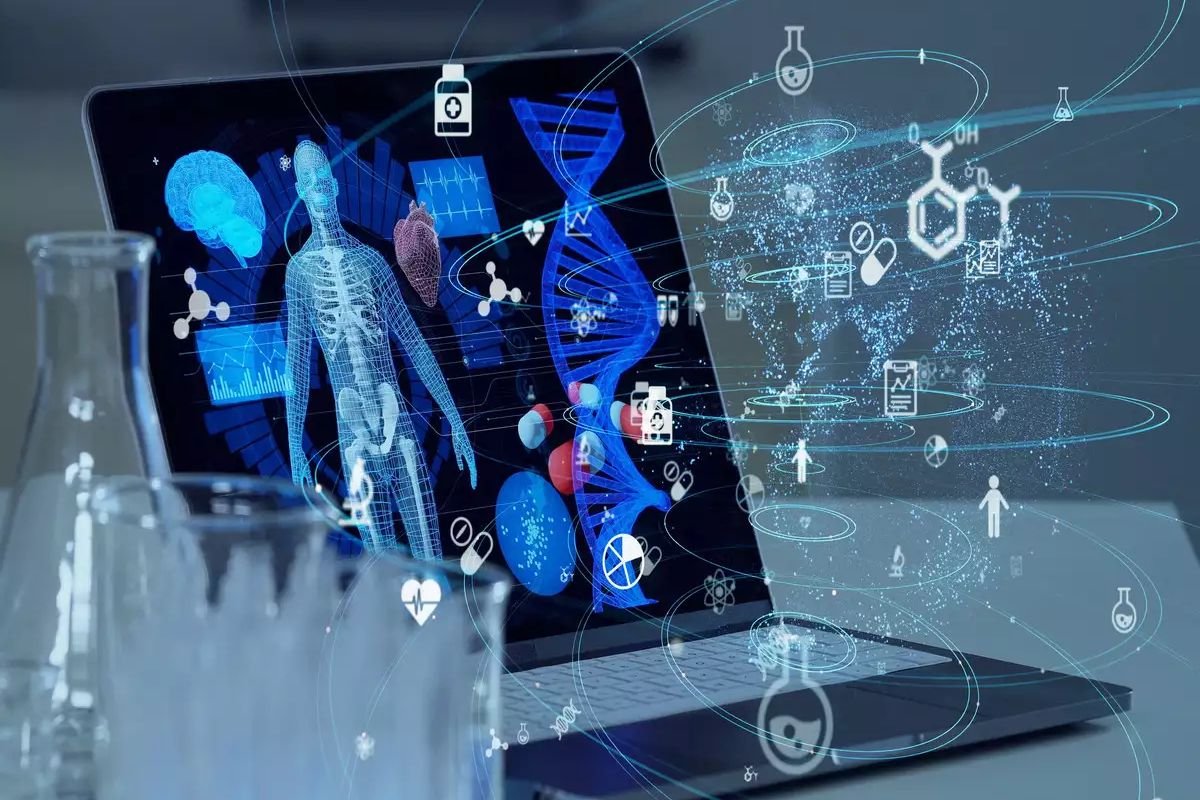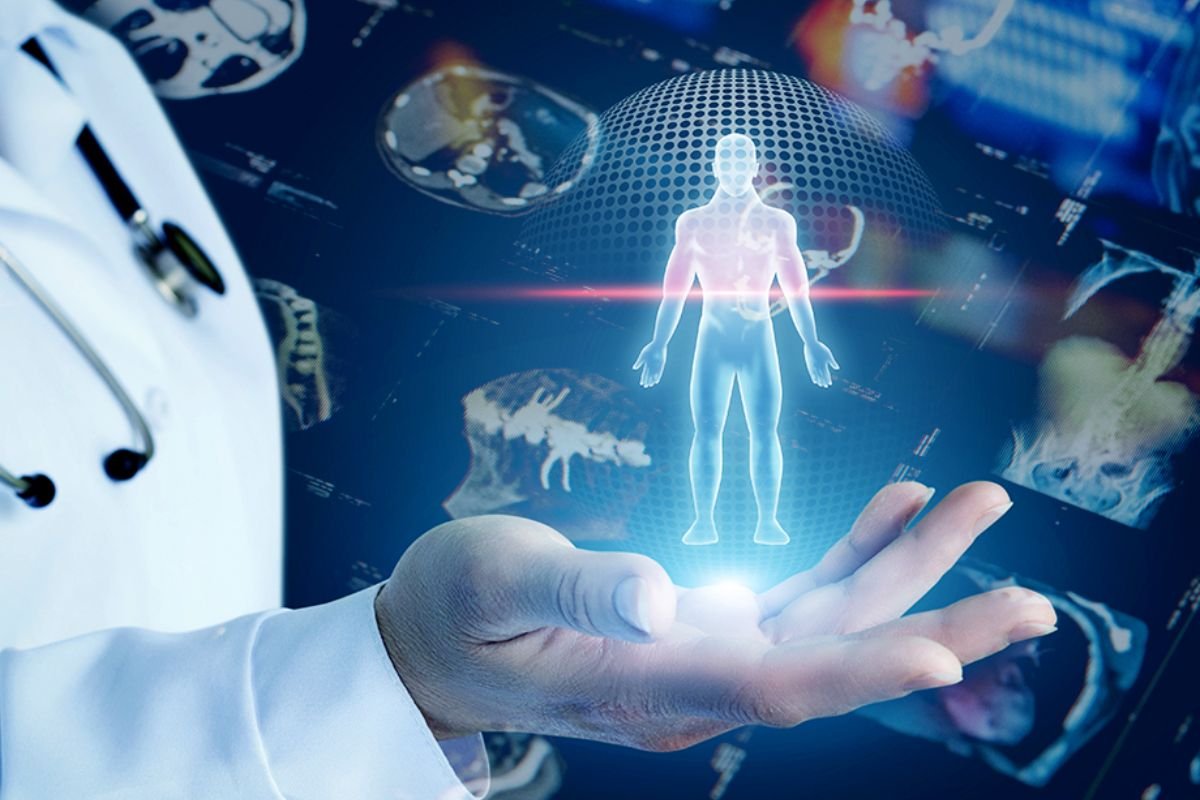Why Digital Twin Technology is the Future of Healthcare?

- Source: linkedin.com
Digital twin technology in healthcare has emerged as a powerful innovation that is transforming medical practices. By creating virtual models of real-world processes, digital twins are used in treatment planning, improving diagnostics, and overall patient care. In this article, we will explore the concept, benefits, applications, and future of digital twin technology in healthcare.
Understanding Digital Twins in Healthcare
A digital twin is like a virtual copy of something real, such as a person, machine, or system. In healthcare, this means making a digital model of a patient, medical tool, or hospital setup. These digital models act like real-life versions, helping doctors study data, predict results, and make better decisions.
For example, doctors can create a digital twin of a patient’s heart using data from smart devices like fitness trackers. This lets them study how the heart works without needing surgery, making treatment safer and more effective.
Advantages of Digital Twins

The use of digital twin technology in healthcare offers different benefits:
- Enhanced Treatment Planning – Digital twins allow doctors to test different treatment options virtually before applying them to a real patient, ensuring safer and more effective decisions.
- Personalized Healthcare – By using a patient’s data, digital twins can simulate personalized treatment plans tailored to their specific needs.
- Improved Surgery Outcomes – Surgeons can practice complex procedures on digital twins, minimizing risks during actual surgeries.
- Faster Drug Development – Pharmaceutical companies use digital twins to predict how drugs will react in the human body, reducing trial costs and accelerating development.
- Optimized Hospital Operations – Digital twins can model hospital systems, ensuring better resource management, staff planning, and equipment use.
Technology in Healthcare
The successful implementation of digital twin technology in healthcare relies on several advanced technologies:
- Internet of Things (IoT): Devices like smartwatches, fitness trackers, and medical sensors collect real-time data.
- Artificial Intelligence (AI): AI algorithms analyze large datasets to predict outcomes and suggest treatments.
- Cloud Computing: Cloud platforms store and process data, allowing healthcare providers to access digital twin models from anywhere.
- Big Data Analytics: This technology helps process massive amounts of patient information to improve model accuracy.
Learn More: 7 Recent Innovations in Cancer Medication Technology
Applications in Healthcare

- Cardiology: Creating digital models of hearts to predict cardiac conditions and test treatments.
- Orthopedics: Digital twins help design customized joint implants and improve post-surgery recovery plans.
- Cancer Treatment: Digital twins simulate tumor growth, allowing doctors to try different therapies virtually.
- Medical Device Development: Companies use digital twins to test and refine medical equipment designs.
Learn More: 8 Benefits of Aloe Vera for Health and Wellness
Real-World Examples of Digital Twins in Healthcare
Several healthcare providers and organizations are already using digital twins effectively:
- Philips Healthcare: They utilize digital twins to monitor and predict patient outcomes in intensive care units (ICUs).
- Siemens Healthineers: Their digital twin models help predict equipment maintenance needs, ensuring hospitals run smoothly.
- Boston Children’s Hospital: This institution leverages digital twins to simulate heart conditions in pediatric patients for better surgical planning.
Use Cases of Digital Twins in Healthcare
- Chronic Disease Management: Digital twins allow doctors to track and predict disease progression in patients with conditions like diabetes or asthma.
- Organ Transplant Preparation: By creating a digital model of an organ, surgeons can better prepare for complex transplant procedures.
- Rehabilitation Planning: Digital twins help design personalized recovery programs for patients recovering from injuries or surgeries.
- Predictive Maintenance: Hospitals use digital twins to forecast when medical devices may fail, ensuring timely repairs.
- Training for Medical Professionals: Digital twins provide a safe platform for medical students and doctors to practice complex procedures.
Challenges of Adopting Digital Twin Technology in Healthcare

- Data Privacy Concerns: Handling sensitive patient data requires strict security measures to prevent breaches.
- High Implementation Costs: Developing accurate digital twin models can be expensive for healthcare institutions.
- Complexity in Data Integration: Combining data from multiple sources like wearables, electronic health records, and imaging systems can be challenging.
- Need for Specialized Skills: Healthcare providers need skilled professionals to manage and interpret digital twin data.
Future of Digital Twin Technology in Healthcare
The future of digital twin technology in healthcare looks promising. With advancements in AI, IoT, and data analytics, digital twins will become more accurate and accessible. In the coming few years, we can expect:
- Wider Adoption in Hospitals: More healthcare facilities will integrate digital twins for improved patient care and operational efficiency.
- Enhanced Predictive Models: AI will improve the ability of digital twins to predict medical conditions and treatment outcomes.
- Greater Use in Telemedicine: Digital twins will enable remote monitoring and treatment planning for patients.
- Innovations in Drug Testing: Pharmaceutical companies will rely more on digital twins to accelerate drug development.
Conclusion
Digital twin technology in healthcare is transforming the medical field by improving diagnosis, treatment planning, and patient outcomes. With its ability to create accurate virtual models, this technology offers immense potential for personalized healthcare, faster drug development, and better hospital management. As digital twins continue to evolve, they will play a crucial role in shaping the future of healthcare.